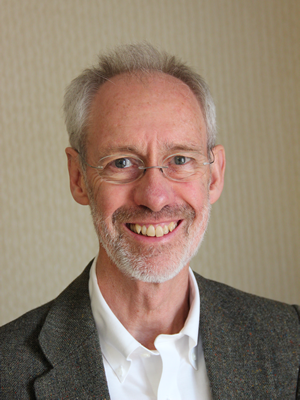
TS Eliot famously wrote that ‘April is the cruelest month.’ He’d obviously never had to write a February President’s letter in the middle of a dull and long British winter. Fortunately, the IFCN always has exciting new things happening. So, welcome to the first letter of 2025.
Their objective is to develop a global network of young clinical neurophysiologists within the IFCN and unashamedly to encourage the next generation of leaders. As YNN kicks off 2025, I am delighted to announce a series of upcoming events. They will be holding a virtual networking event designed to share experiences with your peers and expand your professional network. The event took place on Saturday February 22nd at 8:00 Eastern Time.
They also plan to hold a ‘Chat with the Expert’ in March where participants will have a chance to engage in a live question and answer with a senior clinical neurophysiologist. This is a unique opportunity to ask questions, seek advice on overcoming challenges, and gain valuable insights on advancing in your career. This session will encourage an open exchange of ideas, helping to nurture the next generation of neurophysiologists.
YNN will also be present at ECCN 2025 in London! We're planning exciting activities, including a dedicated YNN booth and another networking event. This will be a perfect opportunity to meet like-minded individuals and learn more about the global neurophysiology community.
IFCN is excited to share that the call for Education and Research Fellowship is now open. The educational arm of this prestigious program is designed to provide further training in Clinical Neurophysiology with a focus on skill development. The hope is to address any knowledge gaps in the fellow’s home country so that they can return to their homes to use their newfound learning as they develop their careers. The research arm is aimed similarly but focused on encouraging acquisition of a research-oriented skill which can then be used back on the Fellow’s home. Without suggesting too lofty additional aims, the Fellowships also add to a global exchange of knowledge and hope to foster professional growth and international collaboration in our specialty. Previous Fellowship winners have expressed their gratitude for the invaluable experience they have gained and then enjoyed sharing this knowledge with their colleagues and peers in their home country.
Over the last few years Fellowships have also been reduced in duration and opened up to more member society countries and encouraged travel to be regional where possible rather international. As a result, IFCN is pleased to share that fellowships have taken place in more than 25 countries since its inception. Please look on our website for details here; To apply. The education and research committees go to great lengths to assess applications, with initial scoring and then comparative ranking. So please apply and good luck.
A colleague and friend can greet me with ‘What’s new?’ meaning what new research should he know about. We are all guilty of checking alerts for the latest papers, and to keep up with IFCN activity I direct your attention to the great work which our social media editor Eishi Asano, is doing it this regard.
But there is also a body of established work and methods which stand the test of time. Our Handbooks of Clinical Neurophysiology has been focused on this work, with authoritative reviews and chapters from renowned experts. Our Editors-in Chief of our journals introduced the latest series in 2021. Ulf Ziemann and Margitta Seeck, ‘The new Handbook Series of Clinical Neurophysiology,’ Clinical Neurophysiology Practice 6 (2021) 244, https://doi.org/10.1016/j.cnp.2021.06.006.
The Handbook of Clinical Neurophysiology’s first series, with brown covers, was first commissioned in the 1970s and revised in the 1980s, which was blue. Each volume was concerned with technique. Twenty years ago or so, a new series was commissioned on clinical fields instead of techniques: movement disorders; muscle and NMJ, presurgical assessment of epilepsy, MND, visual processing, sleep disorders, peripheral nerve diseases, IoM, and vertigo and imbalance. https://www.ifcn.info/handbook-series.asp.
Though these all stand as summary of their fields, the field of clinical neurophysiology advances, driven by new techniques and tools that enable the deciphering of pathological changes in the human central and peripheral nervous system with increasing detail and precision. The time is, therefore, more than ripe to start a new Handbook series. This is being published online in CLINPH and CNP as chapters but then collected into Virtual Special Issues (VSI), freely available Clinical Neurophysiology Special Issues and Clinical Neurophysiology Practice Special Issues . Each VSI may be printed on demand, complete or with a selection of chapters, allowing creation of individually designed books.
A previous volume editor, Mark Hallett, oversaw volume 1 on Movement Disorders. Clinical Neurophysiology | Handbook of Clinical Neurophysiology – Volume 1: Clinical Neurophysiology of Movement Disorders | ScienceDirect.com by Elsevier. The second volume on Motor Neuron Diseases was edited by Hatice Tankisi and Steve Vucic, Clinical Neurophysiology | New Handbook of Clinical Neurophysiology – Volume 2: Clinical Neurophysiology of Motor Neuron Diseases | ScienceDirect.com by Elsevier Further volumes are already underway. As Ulf and Margitta wrote, with some understatement, the new Handbook series will serve as an educational encyclopedia of the IFCN.
The first chapter from Volume 3 is about to be published and the focus of the whole volume revealed. So the suspense will soon be over. IFCN also has other exciting initiatives underway but dear reader, these will be featured when ready. And on that cliffhanger I will close.
Best wishes,
Jonathan Cole